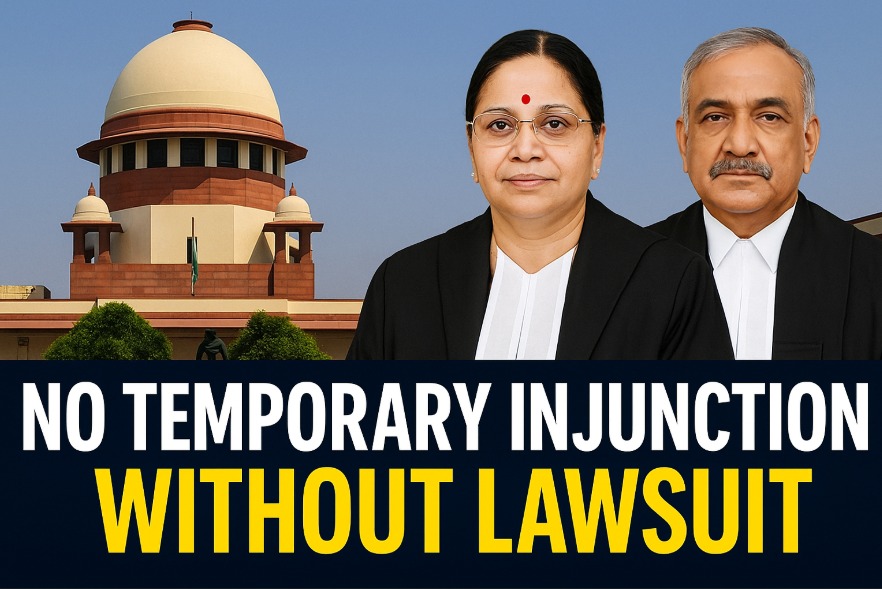In a landmark ruling, the Supreme Court of India clarified a crucial procedural point in civil litigation: any appeal against the denial of a plaint under Order VII Rule 11 of the Civil Procedure Code (CPC) that seeks a temporary injunction is legally untenable. This ruling emphasizes the legal position that no temporary relief, including an injunction, may be granted in the absence of a valid, ongoing lawsuit.
Case Background
The Global IEEE Institute for Engineers and the IEEE Mumbai Section Welfare Association were parties to the case. The case went like this:
The respondent filed a civil suit in the Commercial Court.
The court rejected the plaint using Order VII Rule 11 CPC, which is applied when a plaint is unlawful or lacks a cause of action.
Respondent approached to high court asking for temporary injunction.
This temporary injunction was issued by the High Court. An injunction is a court order that prevents the other party from doing certain actions until the matter is resolved. The other side, however, was not happy with this ruling and chose to appeal it to the Supreme Court.
The Supreme Court’s decision
A Supreme Court division bench consisting of Justices B.V. Nagarathna and S.V.N. Bhatti heard the case. The High Court’s injunction order was overturned by the Supreme Court, which decided in favor of the appellant.
Key Reasoning: The Supreme Court stated that a plaint is legally null and void once it is dismissed.
An appeal against the rejection does not continue the original lawsuit. The suit ends with the rejection of the plaint unless the order is reversed.
As a result, no interim or temporary relief (like an injunction) can be granted, since there is no existing legal proceeding (plaint) in place to protect.
The court declared, “It cannot be said that the appeal filed against such an order is a continuation of the suit once the plaint is rejected by the trial court.”
1. The Supreme Court emphasized that obtaining a temporary injunction requires the existence of a valid lawsuit. As a result, there’s no ongoing legal matter that an injunction can apply to. Any temporary order granted to safeguard the subject matter of the suit is also immediately null and void.
2. Requests Never try to fix a suit yourself.
An appeal against the denial of the plaint does not bring the suit back to life. Therefore, you cannot seek injunctive relief in such an appeal until the rejection order is overturned.
3. Appropriate Methods Are Required for Relief
The purpose of injunctions and other temporary remedies is to safeguard ongoing legal proceedings. Courts cannot issue these protective orders when there is no active case (because the plaint was rejected).
AUTHORED BY
Pragya Jakhar is a second-year Lovely Professional University student pursuing a B.A. LL.B. (Hons.). Human rights and constitutional law particularly interest her. Pragya likes to write about legal subjects and is committed to improving and making the legal system more accessible to all.
Throughout the years, she has written numerous articles that examine important legal issues, and her growing comprehension of the operation of the law, both in books and in practice, allows her to contribute perceptive opinions to academic and policy discussions. She enjoys keeping up with news and significant court decisions.

